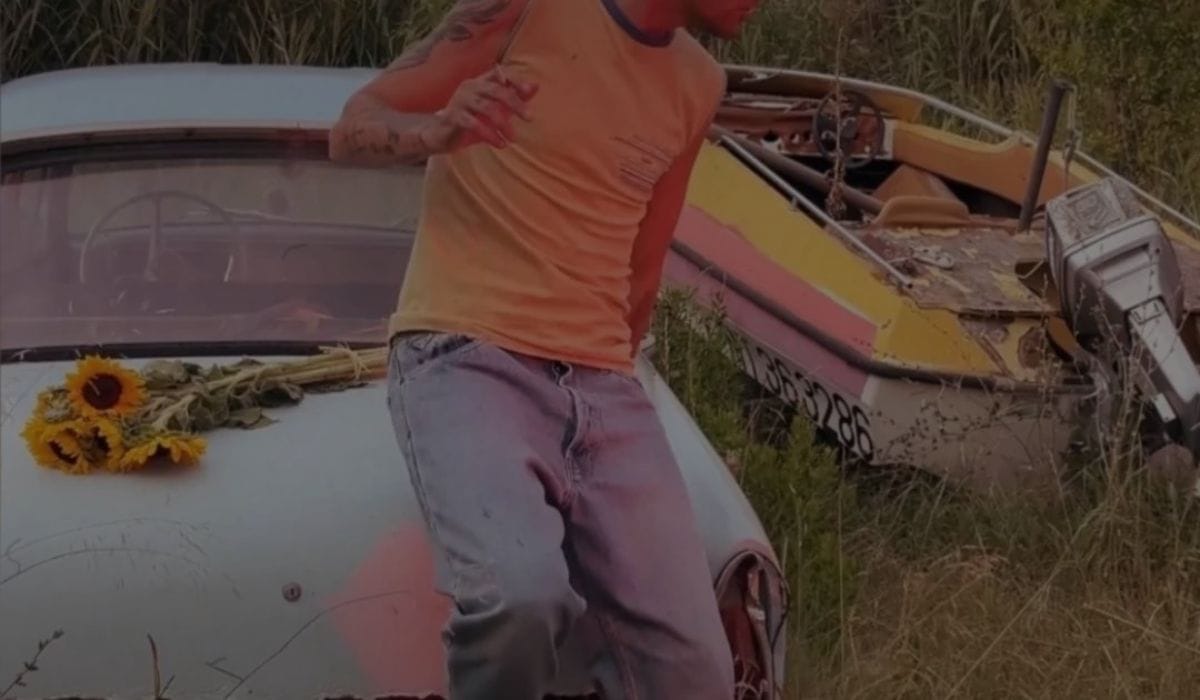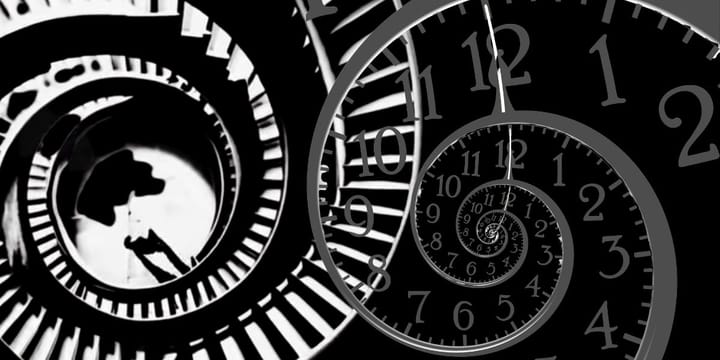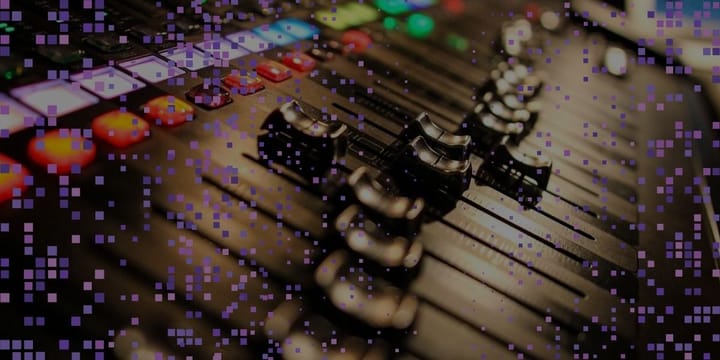Curious Case of Cosmic Leeds
Every major entertainment property engineers fan engagement to some degree. Easter eggs in videos, cryptic social media posts from artists, "leaked" footage, carefully timed paparazzi photos—the line between organic fan culture and corporate strategy has always been blurry.

That car in the tall grass behind Louis Tomlinson in the new Lemonade promo is a 1959 Simca. That dented French relic is just a letter away from Simco, the ghost of Simon Cowell’s original company — and the year he was born. It feels like Louis's history with Simon in rust form. And he’s sitting in front of it, jumping on top, cigarette in hand, confidently daring the past to start its engine again. Louis is telling a story with this new promo (and I'm guessing the whole album) and it seems to start with this metaphor.
Simon didn't just control the band he controlled the story from the beginning. See my post Simon Spots A Hook about how the ‘Larry’ story started only three months after 1D first appeared as a band in July 2010.
When I saw that car I got to thinking about that name: SIMCA. SIMCO?
In the world of One Direction fandom, few mysteries have been as persistent—or as peculiar—as the YouTube channel known as Cosmic Leeds. For years, this "fan-made" channel uploaded videos including rare backstage footage, unreleased interview clips, and copyrighted X Factor material, all while somehow avoiding the copyright strikes. The channel vanished as mysteriously as it appeared.
The SIMCO Connection
Simon Cowell's television production entity was SIMCO Ltd, a subsidiary or division operating under the broader Syco/Sony joint venture umbrella. It was essentially an internal corporate structure within the larger Syco Entertainment business, with SIMCO handling the television production side of things. The Syco brand became the public-facing name for all of Simon Cowell's entertainment ventures, while SIMCO operated as one of its component parts behind the scenes. As such it held the rights to X Factor content, including all that precious backstage footage of five boys becoming One Direction.
Now, rearrange those letters: SIMCO becomes COSMIC. It's not an exact "anagram' but Simon (and whoever he paid to create these clipped and slowed videos) wasn't trying to play word games. He just wanted something clever to get attention and keep 'Larry' going.
Coincidence? Maybe. But why this car? Why not an old British relic? In an industry built on calculated moves and brand management, coincidences are rare.
The Timeline That's Too Perfect
Cosmic Leeds appeared on September 2nd, 2020—near the start of the global pandemic when live entertainment had ground to a halt, touring was impossible, and the music industry was desperately seeking ways to keep fans engaged. It was a moment in history when traditional revenue streams were frozen and digital engagement became the only game in town.
Here's what makes it interesting: the You Tube channel (and X and Tumbler accounts) ended exactly five years to the day—September 2nd, 2025. They all vanished mysteriously with no questions to be asked because suddenly, after all that time, 'the account was being threatened'. The mysterious 'Arden' never showed themselves. Instead, the whole 'takedown' was being reported by a 'friend' on X.
Five years. To the day. Not approximately five years, not "around early September." The exact same date.
That kind of precision doesn't happen with organic fan projects. Fan channels fade out, get abandoned when life gets busy, or end abruptly when someone gets a copyright strike. They don't run for exactly five years and then cease operations on a specific anniversary date.
That's the kind of timeline that suggests a predetermined contract term, a planned operational window, with a scheduled end date – and coincidently, September, a month Louis has been hinting at for some time.
The Copyright Conundrum
Anyone who's ever tried to upload copyrighted material on YouTube knows how ruthlessly fast Content ID strikes. Major record labels and production companies have automated systems that detect their content within seconds. Yet Cosmic Leeds operated for years, posting footage that should have triggered immediate takedowns—footage owned by SIMCO Ltd and associated entities. And we know that other accounts WERE hit with strikes and removed.
Whether ‘Larry’ was real is beside the point. From a business perspective, the question has always been: Does this storyline keep fans engaged?
YES!
The Larry fandom represented one of the most dedicated, active, and commercially valuable fan segments in modern pop culture. They bought albums, concert tickets, and merchandise. They streamed songs millions of times. They kept the conversation going long after One Direction went on hiatus in 2016. By 2020, when Cosmic Leeds began, the band had been on hiatus for five years—but the fandom needed feeding.
The Problem (2020): One Direction is on indefinite hiatus. The members are pursuing solo careers with varying degrees of success. Fan interest in the collective brand is waning. Streaming numbers for old albums need maintenance. Oh, and there's a global pandemic—no tours, no live events, no traditional promotional opportunities.
The Solution: Keep the most engaged segment of your fanbase actively invested in the narrative. Feed them content. Keep them talking, analyzing, creating, sharing. But do it in a way that maintains plausible deniability. Launch it during the pandemic when engagement strategies are critical and end it five years later when the project term concludes.
The Method: Create a "fan channel" that mysteriously has access to some professional footage. The name 'cosmic' may have been coincidental—subtle enough that most won't notice. The point was not the name - it was about engagement. Then let the fandom do what it does best: engage, theorize, and spread the word.
Every major entertainment property engineers fan engagement to some degree. Easter eggs in videos, cryptic social media posts from artists, "leaked" footage, carefully timed paparazzi photos—the line between organic fan culture and corporate strategy has always been blurry.
The question isn't whether fandoms are influenced by the business side of entertainment—they always have been. The question is whether that influence crosses ethical lines.
Does feeding a fandom content they desperately want—even if the narrative behind it is ambiguous or manufactured—constitute manipulation? Or is it just smart marketing that gives fans what they're asking for?
Here is What We know:
- SIMCO Ltd was Simon Cowell's television production entity
- Cosmic Leeds appeared on September 2nd, 2020 (during the pandemic)
- All the channels ended exactly five years later on September 2nd, 2025
- Cosmic Leeds had access to copyrighted backstage footage
- The channel operated without copyright strikes for years
- No real ‘identifiable’ owner has ever come forward
Simon Cowell built an empire on understanding what audiences want and giving it to them—sometimes before they even know they want it. The X Factor itself was engineered drama, with backstage footage and "real moments" carefully selected for maximum emotional impact. One Direction's entire formation was televised, their journey from strangers to brothers documented and packaged for consumption.
If someone wanted to keep that engagement going years later, anonymously feeding slowed and clipped footage to the most dedicated subset of fans through a cleverly named channel would be... well, it would be exactly the kind of move you'd expect from someone who's made billions understanding fan psychology.
And honestly? If it was a corporate operation, it wasn't necessarily nefarious, unless of course the story it painted was completely false. But perhaps the truth is somewhere in between. Regardless, it did the job. It kept original fans engaged and 'birthed' new 'larries.' It gave fans content and talking points. It kept conversations going. It maintained brand value for a catalog that had commercial worth. In the entertainment industry, that's just... business.
But the bigger question for me is: was it fair to the band members? Did THEY want that kind of attention? Did they have any control over this story? If they didn't, regardless of whether there was any truth to it or not, then that takes on a different form of extreme manipulation and exploitation for profit.



